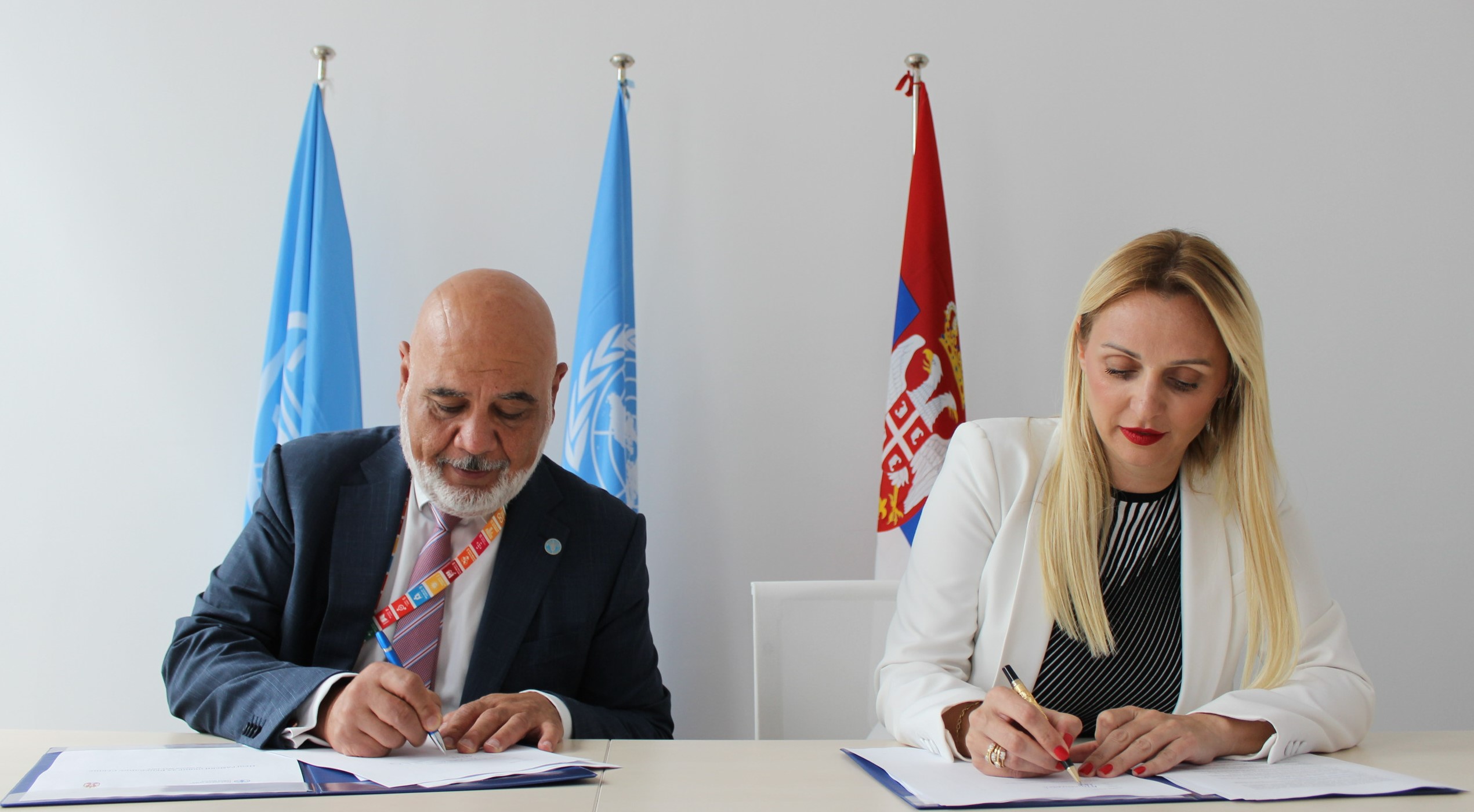FAO and Serbia commit to building sustainable agrifood systems

©FAO/Igor Pavicevic
By 2025, the Serbian food and agriculture sector should be more sustainable, innovative, and inclusive, and with better management of the country’s natural resources. These objectives are detailed in the Country Programming Framework of the Food and Agriculture Organization of the United Nations (FAO) and the Republic of Serbia.
The accord, defining the main priority areas of co-operation between the UN agency and its Member Country, was signed today in Budapest by Nabil Gangi, FAO Deputy Regional Representative, and Jelena Tanaskovic, Serbian Minister of Agriculture, Forestry and Water management.
The realization of the joint goals will help make Serbia’s agriculture sector more competitive and strengthen its contribution to the achievement of the Sustainable Development Goals.
“In the past almost 80 years since its establishment, FAO has already proved that it is a committed partner in transforming the food and agriculture sector,” said Nabil Gangi. “We are happy to continue our collaboration with the Republic of Serbia and offer FAO’s technical expertise in the areas included in the newly signed Country Programming Framework.”
“In our pursuit of a sustainable, innovative, and inclusive agriculture and food production, Serbia remains dedicated to our ongoing partnership with FAO to achieve our shared goals,” Minister Jelena Tanaskovic added. “Together with FAO, we will prioritize efforts to mitigate the adverse effects of current production and consumption models on our environment and communities. Our focus will be on strengthening the resilience of rural communities, allowing us to accelerate the adaptation of the agrifood and forestry sectors to the challenges posed by climate change and natural disasters.”
FAO and Serbia will work towards adoption and implementation of more ambitious climate change and environmental strategies, using a multifaceted approach. One avenue of activity will work to reduce the adverse effects of the current production and consumption models on people and the environment. Support to rural communities will increase resilience to shocks and advance the adaptation of the agrifood and forestry sectors to climate change and climate−induced and human-made disasters and accelerate the uptake of sustainable management of natural resources. Another line of action will be to promote green and equitable economic growth and employment strategies for sustainable and inclusive food systems. The strategy will also address a developmental mismatch between urban centres and underdeveloped rural areas and give support for the European Union accession process.
In Serbia, the agriculture, forestry, and fisheries sectors generate around 9.4 percent of the gross domestic product, account for 14.5 percent of employment, and contribute 18 percent of total exports. The fertile soils and a favourable climate provide suitable conditions for agricultural production. But these advantages are overshadowed by the highly fragmented farm structure, declining biodiversity, social and economic inequalities, and the negative demographic trends that are hampering growth in rural areas.
Extreme weather events, pest invasions, and other types of climate-induced shocks are risks for the country. Serbia is among the highest-ranking countries in the region in terms of vulnerability to natural hazards and climate change, including floods, storms, droughts, landslides, and earthquakes, making environmental sustainability a high priority for the country.
Digitalization will play a critical role in improving resilience, competitiveness, and efficiency of agricultural sector, resulting in better production and better livelihoods.
Actions for a sustainable and equitable future
FAO will support capacity building of national institutions and farmers in Serbia on various areas, such as climate change mitigation, natural resource management, including of forests. Assistance will include policy development support, and transfer of technology, knowledge, and skills. FAO will promote good agricultural practices and innovation, with a focus on rural women, youth, and other vulnerable groups.
FAO and Serbia have agreed to ensure the long-term protection of natural resources, with a view to sustainable growth for the benefits and needs of future generations. Improved forest management, increased decarbonisation of the sector, resource mobilization, addressing soil degradation and pollution, and monitoring soils are key elements in this work. Furthermore, Serbia will benefit from FAO support in the development of its national strategy and action plans for animal genetic resources, as well as in implementing a genetic conservation programme.
The Country Programming Framework places innovation squarely in the center of its focus to ensure equitable economic and employment opportunities for rural areas. To achieve this, improved policy and regulatory frameworks are needed that not only facilitate equitable and innovative economic development, but also incentivizes the transformation to circular, low-carbon development, increases competitiveness and trade, and creates decent jobs.
18 July 2023, Budapest, Hungary
Modernizing food safety while preserving traditions in Serbia
FAO wraps up African swine fever preparedness project in the Balkans
Ensuring rural development through better access to land for women in the Western Balkans
Eastern and Southeastern Europe commits to restore more than 4 million hectares of land by 2030
Promoting local cattle breed enhances sustainability in mountainous areas of Serbia
Publication: Soil pollution in Serbia: risk to health and food security

